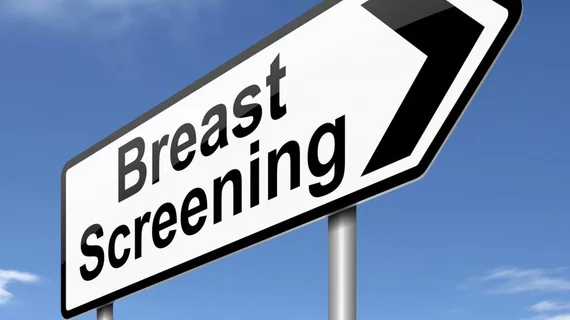Screening mammography recall rates may be associated with a radiologist's annual reading volume and level of experience, according to research published July 20 in the Journal of the American College of Radiology.
The study also demonstrated no direct correlation between higher radiologist recall rates and increased cancer detection among breast subspecialists. Radiologists concerns about possible malpractice claims, individual risk tolerance and stress due to uncertainty also did not increase recall rates, wrote lead author Catherine Giess, MD, a radiologist at Brigham and Women's Hospital in Boston.
"Our findings refute the theory that there may be an unmeasurable (and hence difficult to modify) characteristic of radiologists that makes them inclined to call mammographic findings abnormal. This has favorable implications for reducing recall rate variability," Giess et al. wrote.
For their study, 61,198 screening mammography examinations were interpreted by 13 breast imaging specialists at one academic center and two outpatient centers from October 2012 to May 2015.
Patient demographics, breast density, BI-RADS assignment and current prior mammography screening examination findings were also collected, according to the researchers. Surveys were distributed to radiologists to measure risk aversion, stress from uncertainty and malpractice concerns.
"Univariate and multivariate analyses assessed patient, radiologist, and examination characteristics associated with likelihood of mammography recall," the researchers wrote. "The Pearson product-moment correlation coefficient was used to assess the relationship between cancer detection rate and recall rate."
Of the 61,198 screening examinations evaluated, roughly 9 percent were recalled. This percentage was associated with a radiologist's annual reading volume and having less than 10 years of experience, in addition to a patient's age that is greater than 50 years, having dense breasts, tomosynthesis technique, baseline examinations, and findings on prior screening mammogram examinations, the researchers concluded.
"Targeting radiologist factors affecting recall, such as increasing annual volumes (e.g., centralizing screening interpretation among fewer radiologists within a practice) and review of possible recalls from less experienced radiologists, may help reduce false-positive screening recalls," the researchers wrote. "If effective, such initiatives could improve patients’ experience of care."

